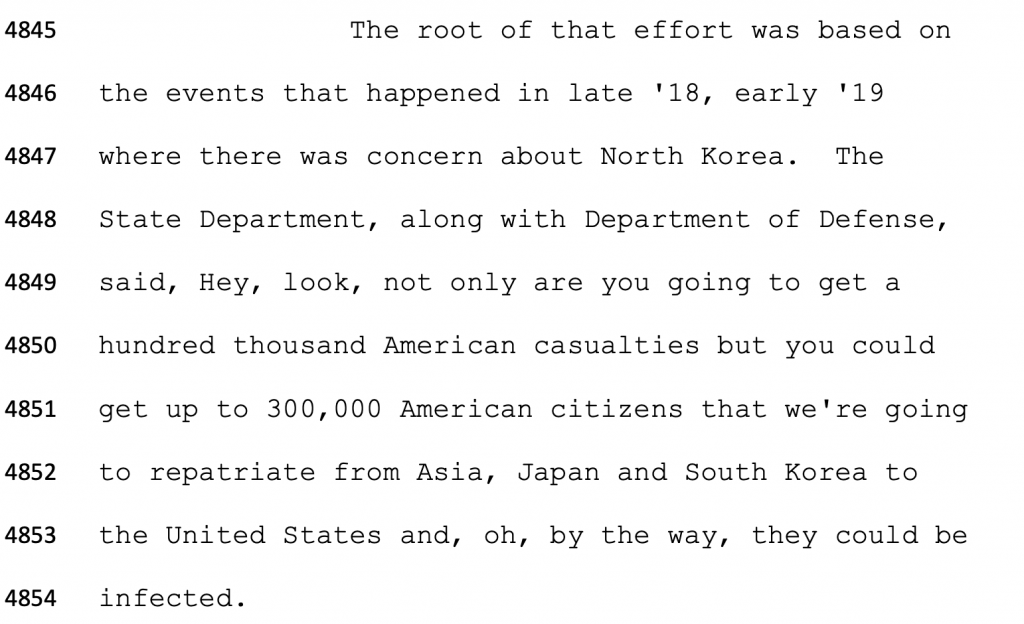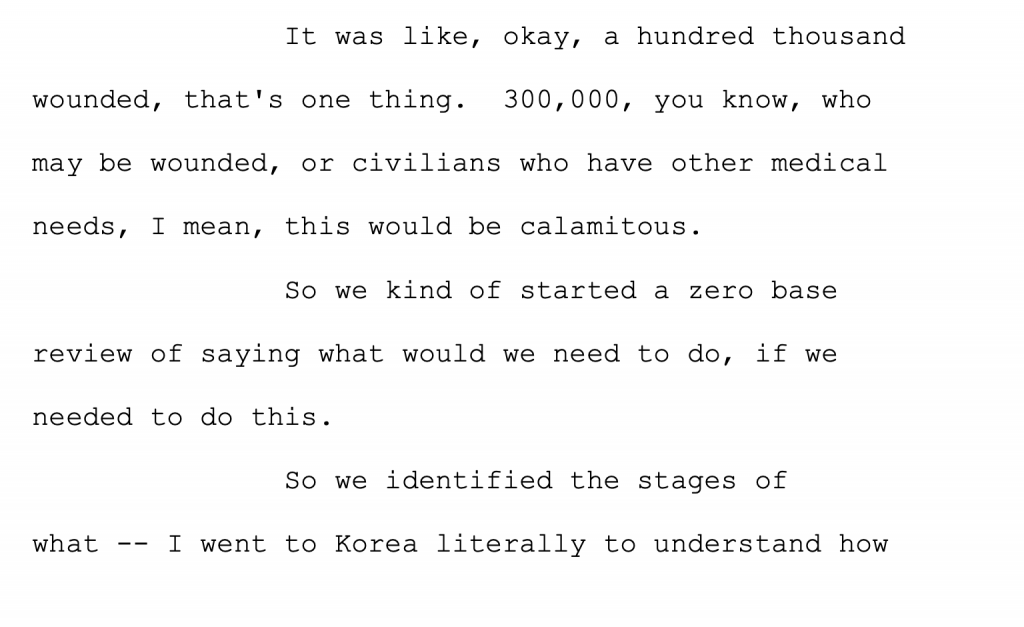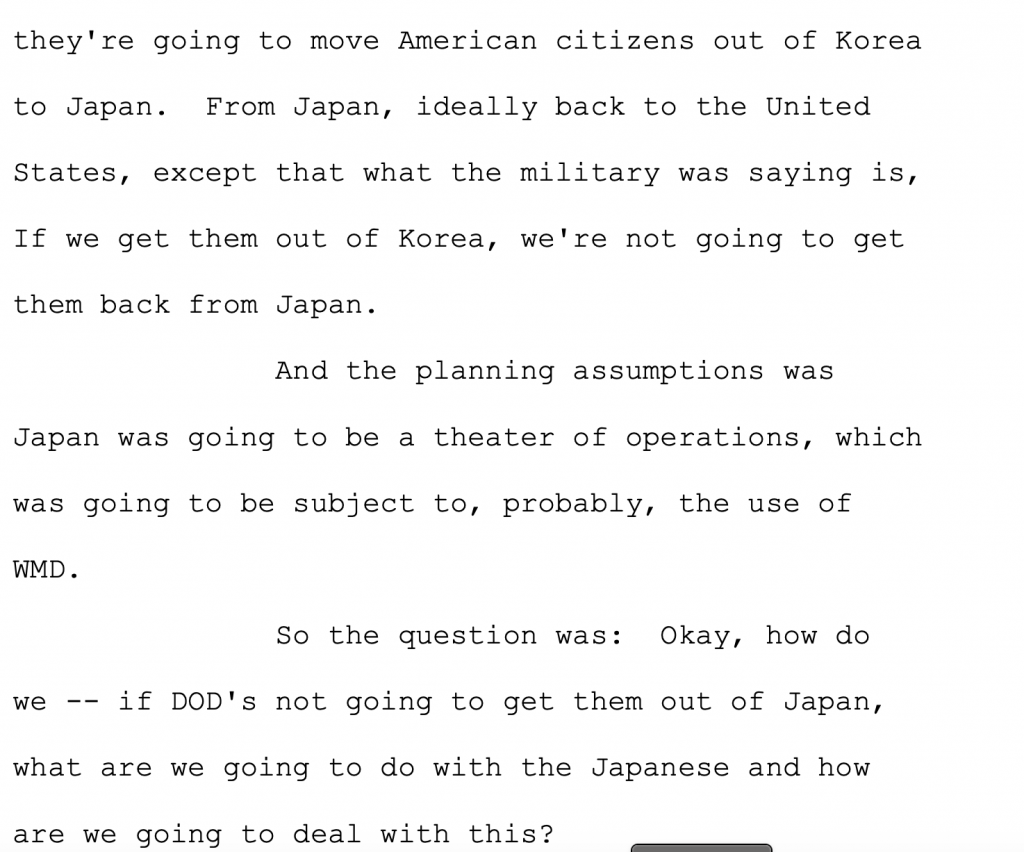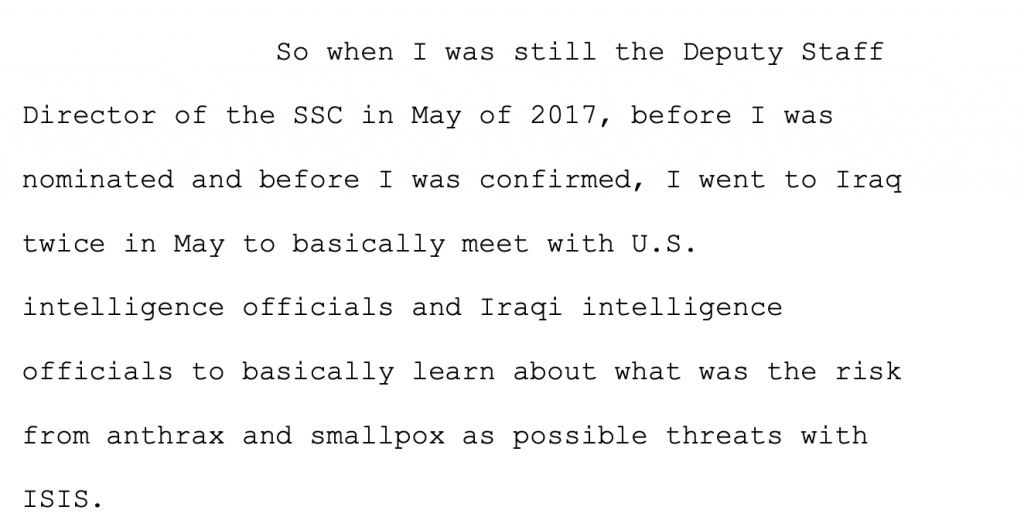With the data we gathered during those tests, which were standardised for the available weapon system, we have secured our nuclear test. I know some will argue here that we need constant testing and we don’t believe what we don’t see. We have kind of identified under what circumstances we will not test and those circumstances remaining guaranteed is important for it. So, it’s not as if we have given up the entire thing, but I don’t think that one can think of more tests at the present point of time.
For this purpose, I think that we should take the subtle way to strike a balance—that is to balance security deterrence and development together. So we are not physically testing the weapons or testing nuclear payloads with weapons. We are further researching advanced technologies and technological advancement in nuclear weapons in the laboratory and not physically testing it.
Category Archives: Uncategorized
1998 India Tests: DAE and DRDO
More from this 1998 India Today piece:
The real problem was not that India did not know how to make bombs. It was how to build them to a size that fitted into an aircraft bomb pod, ruggedise the device to take the stress of carting and incorporate safety mechanisms to ensure that they do not go off accidentally. The 1974 device was said to be so heavy that only a transport aircraft could deliver it-which would make it a sitting duck. So when Rajiv Gandhi gave the go-ahead, the DRDO, which initially provided only the implosion mechanism, began to get involved in a big way for the first time. K. Santhanam, who had been recently transferred from the Atomic Energy Department, among other things, began to coordinate the effort as technical adviser to the DRDO.
Finally, India’s two giant scientific establishments, which had operated in relative isolation, began to synergise their strengths. And the results began paying off. By 1989, India had refined its ability to drop nuclear bombs using combat aircraft. By the time the 1995 tests started, the DRDO and the atomic energy team had made major design changes in the bomb, reduced its weight considerably and increased its yield. Elaborate safety packages for delivery had been worked out. And missiles were also developed as delivery vehicles. To describe what he calls this “great partnership”, Kalam devised a simple equation: nuclear technology + defence technology = nuclear weapon technology and systems.
Kakodkar on India’s Deterrent II
More from this interview:
In the case of Pokhran-II, we tested our thermonuclear device at a controlled yield of 45 kt, as the Khetolai village was just about five kilometres away and we had to ensure that the houses in the village, which had a population of about 5000 people would suffer negligible damages. The army was informed that the villagers need to be told to step out of their houses during the tests. This was a difficult task as we had to maintain secrecy. But none of the villagers questioned or complained.
Kakodkar on India’s Deterrent
In this interview, Anil Kakodkar issued his opinion on the status of India’s nuclear deterrent:
We have enough data and we do not require to do more tests in future. After the Pokhran-II tests, computer simulation capability to predict the yields of nuclear weapons – fission, boosted fission and two-stage thermonuclear – has been established. We have proved our capabilities. Before we conducted the tests, we factored in almost each and everything. The Pokhran-II has given us the capability to build deterrence based on both fission and thermonuclear weapon systems.
India and Plutonium Transport, 1998 Edition
India Today published this piece in 1998 about the Pokhran tests. There are a bunch of interesting details that many of you may know.
Here’s a description of the plutonium transportation methods:
The manner in which the plutonium cores for the five tests were carted is an example of confident planning. Ten days before the tests, an Indian Air Force AN-32 took off from Mumbai’s Santa Cruz airport at night. Considering the cargo it carried, the security precautions were almost negligible. A couple of Sten gun-wielding commandos guarded the half a dozen wooden crates similar to the ones apples are shipped in. Inside those crates, protected by a metal shield, were perfectly shaped spherical balls of explosive-grade plutonium. Finely crafted by India’s premier nuclear establishment, the Bhabha Atomic Research Centre (BARC) at Trombay, each weighed between five to 10 kg.
At Jodhpur, two hours later, a convoy of trucks lined up at the airport and the crates were placed inside one of them. To make it seem a routine movement, no extra security was provided as the convoy sped to the range under the cover of darkness. Once at Pokhran, the crates were moved to makeshift labs, where other packages containing conventional explosives, detonators and triggers had been flown in, and scientists began mating the various components of the devices. They worked mostly at night to avoid detection by snooping satellites.
For Chidambaram, the chief designer of the Shakti round of tests, it was a vast improvement from the manner in which plutonium was carted when India carried out its first test in 1974. The man, who also played a key role in that test, recalls that then the plutonium crate was ferried by road. Since the scientists didn’t want to take any chances, Chidambaram hopped aboard the convoy of army trucks and stayed with it during the two-day harrowing journey through the desert.
Possible Operational Details of Brahmos Launch
Following up on this post, another article has some interesting details from what the publication says is a petition filed by one of the officers fired after the 2022 Brahmos incident:
“Although the petitioner was an engineering officer, the court of Inquiry apportioned him blame for failure to perform external checks of the combat connectors of combat missiles, which continued to remain connected to FCS Junction Box 1 & 3, while the same was not the role and duty of the Petitioner,” added the plea.
The petition said on the date of the unfortunate incident, there was no specific regulation or prohibition on the use of live weapons during simulated exercises despite the authorities being aware of the inherent risks associated with such processes and the revised SOP was issued only after the accident.
India on Brahmos Pakistan Incident
During a recent legal proceeding, the Indian government, explaining why it canned three IAF officers in connection with the March 2022 Brahmos missile launch into Pakistan, made this observation about that incident:
“Admittedly, this is the matter where we stood embarrassed before the international community. The missile didn’t land in India, it landed in Pakistan. It could have led to a situation of war and that country made a representation to the United Nations,” additional solicitor general (ASG) Chetan Sharma told a bench of justices Suresh Kait and Neena Bansal Krishna.
UK on Israeli Nuclear Weapons
I don’t remember seeing this:
To ask Her Majesty’s Government what discussions they have had with the government of Israel about (1) whether that country possesses nuclear weapons, and (2) any plans by that government to declare any such possession
15 February 2021
Israel has not declared a nuclear weapons programme. The UK Government has called on Israel to join the Nuclear Non Proliferation Treaty as a non-nuclear weapon state and to upgrade its arrangement to a full scope Comprehensive Safeguards agreement with the International Atomic Energy Agency.
Via Declassified UK.
R Kadlec on BW on Korean Peninsula
Robert Kadlec tells a story about plans to manage to evacuate BW victims from the Korean Peninsula:




R Kadlec on ISIS and CBW
More from this interview:

